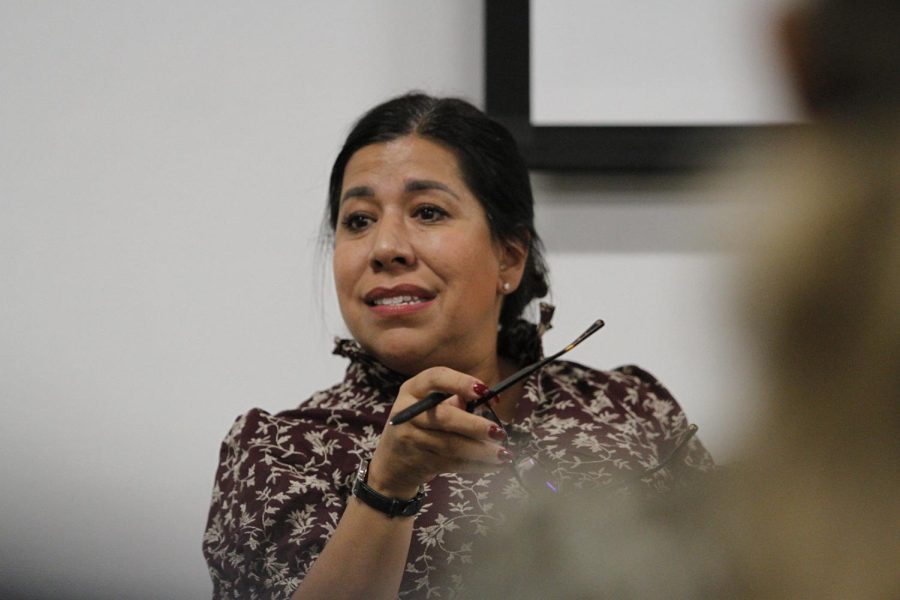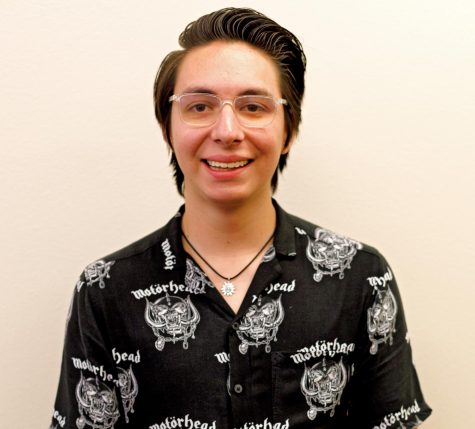A panel presentation, “Bringing Chicanx Pedagogies to Life: a Plática on Strategies for Inclusion and Leadership,” was held Sept. 29 through a collaboration of the Department of Communication, Chicano Studies and the Leadership and Community Engagement Program.
The panel created a safe space to have conversations about diversity and inclusion. The panel discussed the misinterpretation of what it means to be Chicanx and offered strategies to teach students what these labels mean and how to identify themselves.
The panel speakers were Areli Chacón Silva, Ph.D., director of the Leadership Studies Program, Irma Montelongo, Ph.D., associate professor of instruction of the Chicano Studies department, Frank G. Pérez, Ph.D., professor of the department of Communication and panel chair Nayla P. Bejarano, MPH graduate student.
Pérez explained the difference between what it means to be Chicanx, Mexican American or Hispanic and the importance of these labels.
“Hispanics are typically defined as middle class. They might vote but they are not as concerned with social justice,” Pérez said. “Mexican Americans are more in touch with their Mexican roots and are stereotypically known to be more politically active than Hispanics. Chicanx are people who focus on social justice and inequality and want to change the system.”
These definitions help our prominently Hispanic community identify which label is most closely aligned to them. The panel explained how these labels are part of who we are and are important to define how we develop our personal and professional life.
“We are a hybrid culture. We are not American enough for the U.S. and we are not Mexican enough for Mexico,” Pérez said.
The lack of representation of Latinos in positions of leadership was also discussed. The Latino communities face challenges to strive in the U.S. economy.
Chacon Silva explained how Latinos are overrepresented in low-wage occupations and that seeing this lack of representation in higher-paying occupations discourages Latinos from wanting leadership positions.
“Role models and mentors are key in order to educate and help our Latino community,” Silva said. “It is important for Latinos to see themselves as leaders.”
“El Paso is a very atypical place in terms of Mexican American participation in politics and economics,” Silva said. “Even then one cannot deny that the most powerful people in our community are not Mexican origin folks. And this is tied to the legacy of discrimination that taints all of the Southwest.”
The panel aimed to provide a sense of belonging for students with Hispanic backgrounds and encouraged them to be leaders. It also served as a learning opportunity for any ethnicity to learn about inclusion and the issues that affect the Latino community in the workplace. Representation matters, and this event addressed the situation of Latinos in higher education and leadership positions.
“Our people in leadership positions should be a reflection of our student population because that is when the transformation of reshaping students’ leadership mentalities will happen,” Silva said. “We need to lead by example and be those leadership figures for our students.”
Sophia Villalobos is a contributor and can be reached at [email protected]













